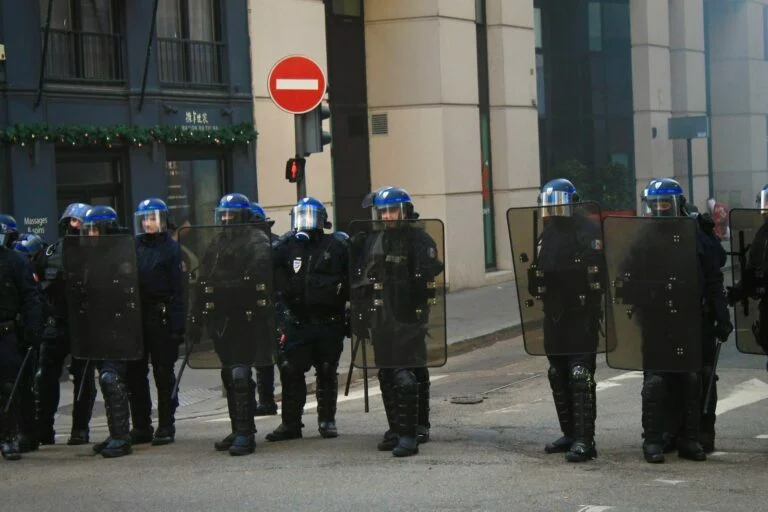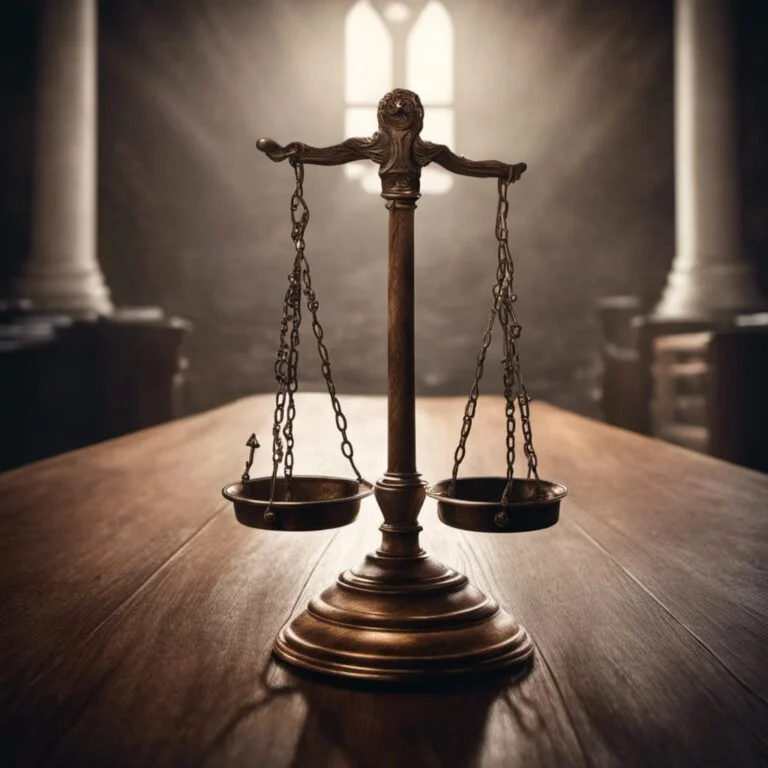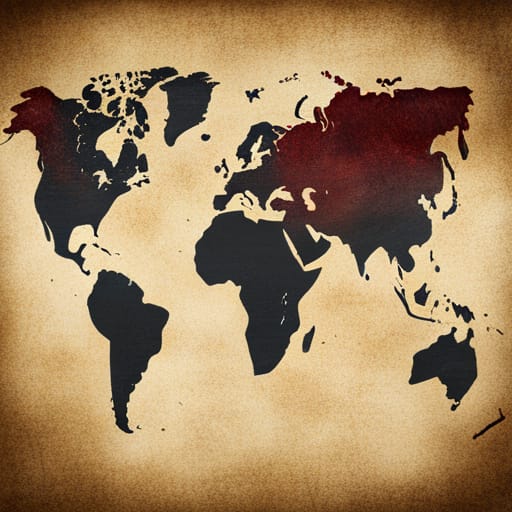
In a world that prides itself on progress and civilization, there still exist shadows that haunt the global conscience. These shadows manifest in the form of human rights violations, where basic liberties and dignities are trampled upon. While many nations strive to protect and uphold human rights, there are unfortunately countries where such values are flagrantly disregarded. Today, we embark on a journey to unmask these dark corners and shed light on the countries with the worst human rights violations.
Genesis of Human Rights
To truly grasp the meaning of human rights, we must first look into their origins. Emerging as a response to historical atrocities and the need to protect individuals from state oppression, the concept of human rights gained momentum in the aftermath of World War II.
The Universal Declaration of Human Rights (UDHR) was adopted by the United Nations in 1948, serving as a pivotal document that outlines the fundamental rights and freedoms inherent to all human beings.
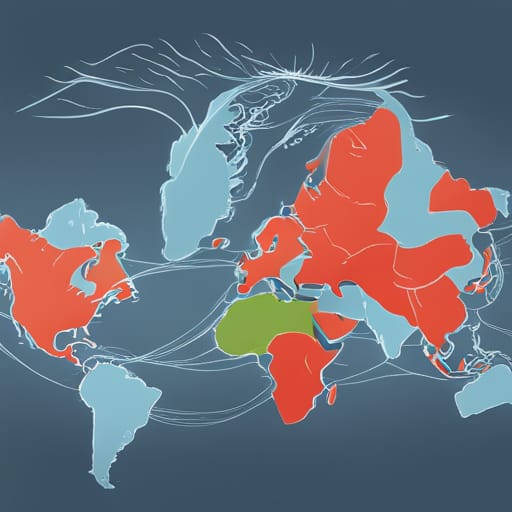
Human Rights Violations By Country
The following are the most oppressive countries to live in.
The world is prominent; unfortunately, many countries have rampant human rights violations. This article will rank the top five countries with the worst human rights violations. These rankings are based on various factors, including freedom of speech, freedom of assembly, and the treatment of minorities. If you’re interested in learning more about human rights violations worldwide, keep reading.
North Korea
Our journey begins with a country shrouded in secrecy, North Korea. Under the oppressive regime of Kim Jong-un, North Korea has consistently ranked among the worst offenders in human rights abuses. From arbitrary detentions and lack of freedom of speech to forced labor camps and restrictions on access to information, the citizens of this isolated nation live in constant fear.
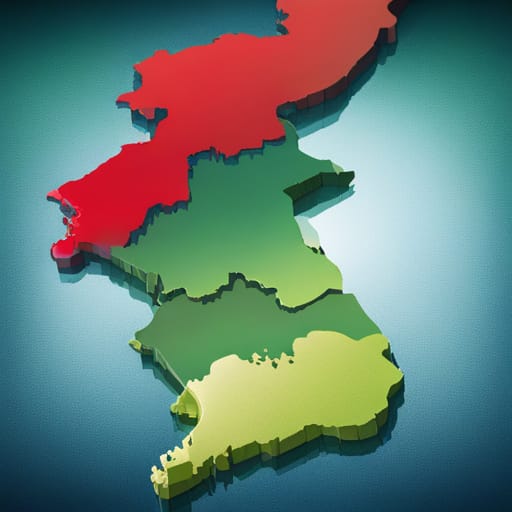
The Hermit Kingdom’s Humanitarian Crisis
The Kim regime operates prison camps where detainees are subjected to deplorable conditions and torture. Camps have been identified where prisoners are starved to death, forced to work in dangerous situations, and subjected to violence. In one center known as Camp 22, it is estimated that 20-25% of inmates die yearly from malnutrition and other diseases.
Myanmar
Next, we turn our attention to Myanmar, where one particular group has suffered unspeakable horrors: the Rohingya. The Rohingya people have faced systematic persecution, including forced displacement, violence, and denial of citizenship rights. The international community has condemned Myanmar for these atrocities, but much work remains to be done to protect the Rohingya and ensure justice for their plight.
China
China is a rising global power with a troubling human rights record. The treatment of ethnic and religious minorities, such as the Uighurs and Tibetans, has attracted international scrutiny. Surveillance, censorship, and restrictions on freedom of expression are everyday realities for many Chinese citizens. Balancing economic growth and global influence with the protection of human rights poses a significant challenge for China and the world.
Iran
The Iranian regime is guilty of human rights violations for a number of reasons. Firstly, it routinely jails political dissidents and journalists who speak out against the government. Secondly, it engages in torture and other forms of cruel and inhuman treatment of detainees. Lastly, it denies its citizens basic rights like freedom of speech and assembly. They even deploy their own form of morality police that terrorizes citizens
These human rights violations have been going on for many years, and show no signs of stopping. The Iranian regime must be held accountable for its actions, and the international community must take action to stop the abuses. Recently a young woman in Iran named Mahsa Amini got arrested and subsequently died in police custody sparking protests all across the country.
Syria
Syria’s human rights abuses have been going on for many years, and the situation has only worsened since the start of the Syrian Civil War in 2011. According to Amnesty International, over 100,000 people have been killed in the conflict, and over 4 million have been displaced. The Syrian government has been accused of war crimes and crimes against humanity, including chemical weapons, barrel bombs, and cluster munitions. In addition, government forces have been accused of torturing and executing civilians and targeting medical facilities and personnel.
Iraq
The human rights situation in Iraq has deteriorated since the outbreak of the conflict in 2014, as all parties have committed serious violations and abuses of international humanitarian law and human rights law. Amnesty International has documented a wide range of human rights abuses by the Islamic State group (also known as ISIS), including executions, torture, other ill-treatment, sexual violence, and forced displacement.
The Iraqi government forces and affiliated militias have also been responsible for serious human rights abuses, including extrajudicial executions, torture, and other ill-treatment, arbitrary arrests and detentions, and forced displacement. The Kurdish Regional Government forces have also been accused of human rights abuses.
Afghanistan
Afghanistan is a country that has been plagued with violence and human rights abuses for many years. The most recent example is the Taliban’s attack on an army school in Peshawar, Pakistan, which left over 130 children dead. This massacre has brought the issue of the Taliban’s human rights abuse to the forefront of international attention.
However, the Taliban are not the only party in Afghanistan responsible for human rights abuses. The Afghan government gets repeatedly criticized for its treatment of women and its use of torture against detainees. For example, in 2010, a report by the United Nations found that “torture is routinely used in Afghan prisons” and that “women [in Afghan prisons] are particularly vulnerable to sexual abuse by prison staff.”
Saudi Arabia
Moving to the Middle East, we encounter Saudi Arabia, a country infamous for its oppressive human rights practices. While reforms have been initiated in recent years, significant challenges remain. Freedom of expression, women’s rights, and the treatment of migrant workers are just a few areas where Saudi Arabia falls short. The world watches closely as the kingdom grapples with the need to balance tradition with progress.
The Struggle for Basic Rights
The Saudi government is often criticized for its human rights abuses. Torture, arbitrary detention, and executions are commonplace in the country, and women and LGBT people are particularly vulnerable to abuse. The government has been known to crack down on any form of dissent, making it extremely difficult for activists to speak out against the mistreatment of Saudi citizens.
Despite the challenges, some continue to fight for human rights in Saudi Arabia. Activists like Manal al-Sharif and Waleed Abu al-Khair have risked their lives to shine a light on the abuses in their country. They represent just a tiny fraction of the brave individuals working to bring about change in Saudi Arabia, and their efforts should be celebrated.
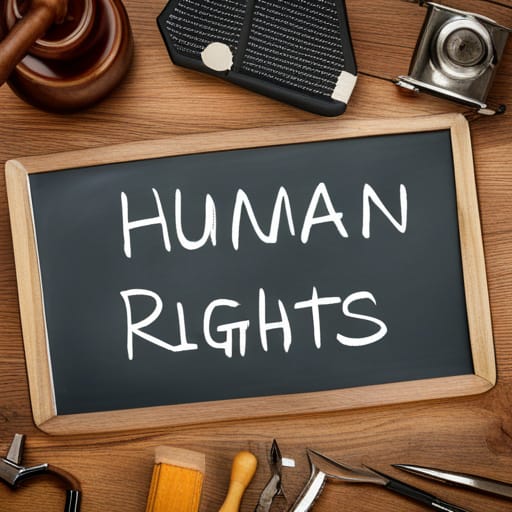
Human Rights Abuses in the USA
The United States has been known to commit human rights violations. For example, the US has been known to detain people without trial, use torture, and engage in targeted killings. The US has also been known to support dictatorships and authoritarian regimes.
The United States has been widely criticized for its human rights record. Amnesty International, Human Rights Watch, and other human rights organizations have documented numerous human rights violations by the US government. The US government has also been denounced by the UN Human Rights Council and other international bodies for its human rights record.
Conclusion
Exploring countries with the worst human rights violations reveals the stark contrast between progress and regression. While many nations champion human rights, others lag behind, perpetuating suffering and injustice. It is our responsibility as global citizens to shine a light on these dark corners, demand accountability, and work toward a future where human rights are universally respected.
By raising awareness and supporting organizations committed to defending human rights, we can contribute to the long journey towards a more just and compassionate world.

